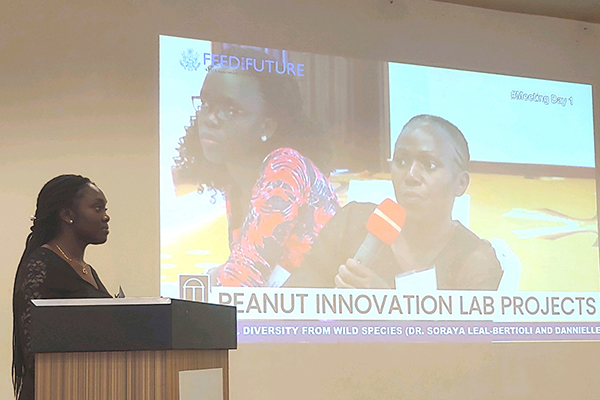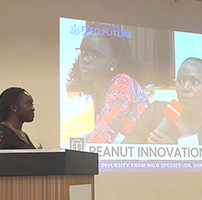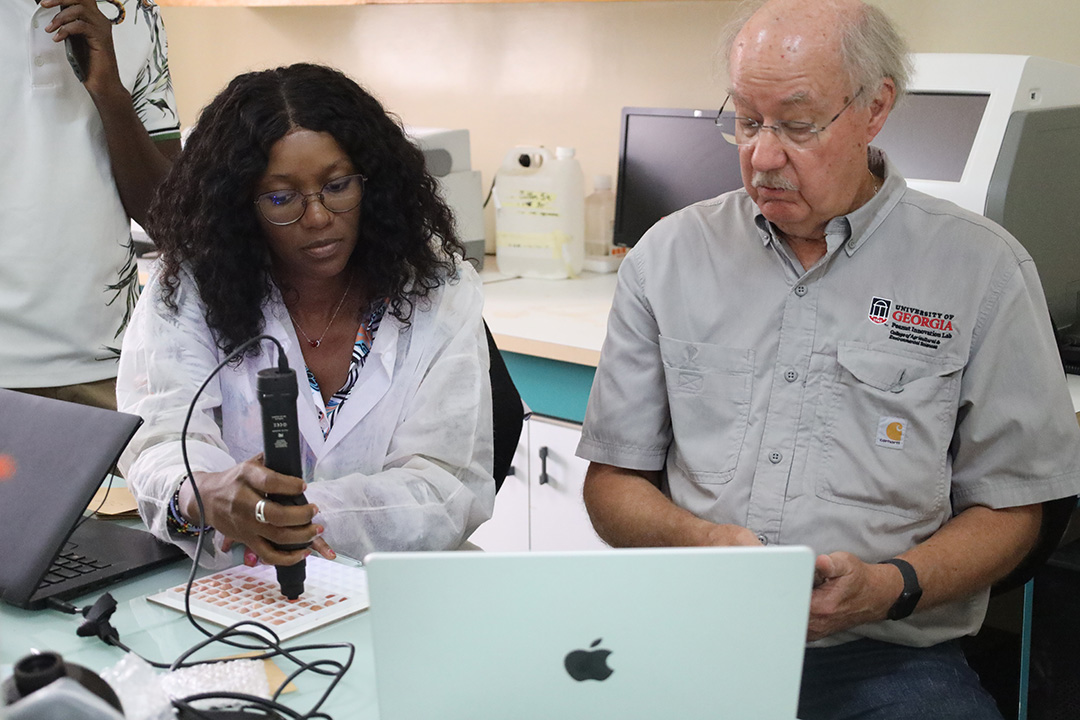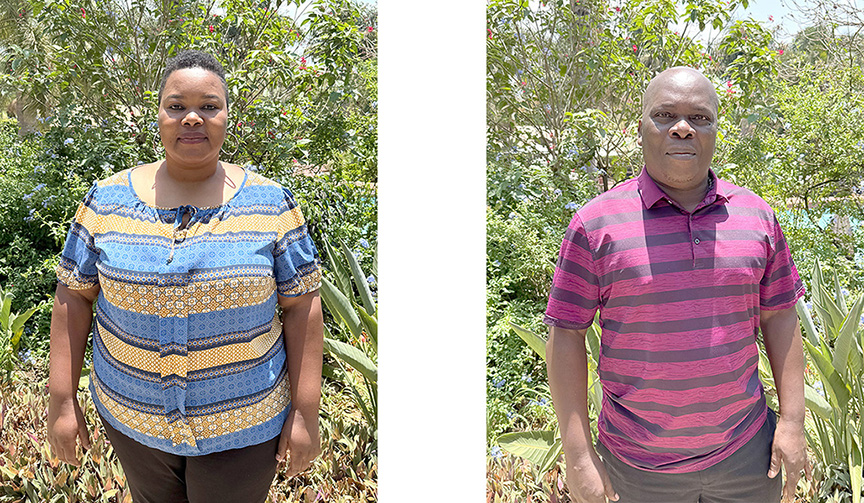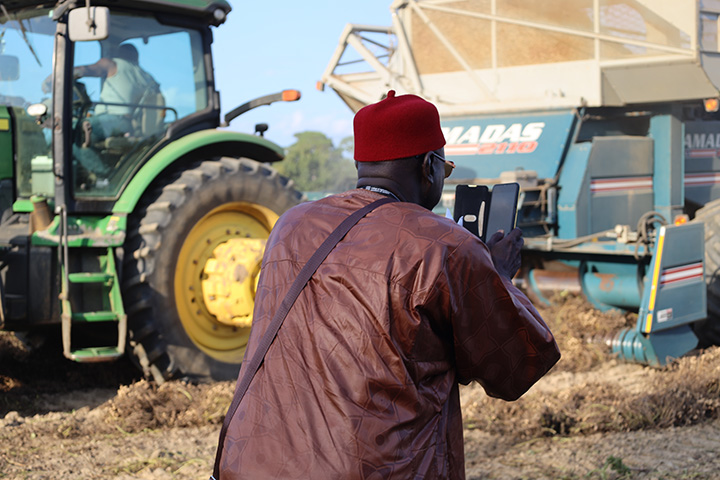Early career success is about more than just gaining expertise in a field. A working professional has to make decisions about where to work, how to balance professional and private time and when to invest in more education.
That’s why the Feed the Future Innovation Lab for Peanut works to connect graduate students with mentors and to foster useful conversations that help a scholar navigate the working world.
Two years ago, the Peanut Innovation Lab launched the “Graduate Student Scholarly Exchange Seminar”, a monthly online gathering that brings experts in science and career development to interact with the lab’s grad students. The sessions are held both in English and in French and give students access to professionals they might not encounter otherwise.
“We felt that we had an exciting opportunity to connect this interdisciplinary, international group of students with each other, and with a broad set of experts working to improve global food and agricultural systems. This type of networking is key to career advancement and gives our students exposure to diverse perspectives as well as the chance to collectively explore different avenues for professional engagement in agri-food systems. With the onset of the COVID-19 pandemic and the closure of many campuses, the Scholarly Exchange Seminar also helped to reduce personal and intellectual isolation.”
Seventy-five graduate students from across Africa and the U.S. are supported through the Innovation Lab. They research topics ranging from plant genetics and crop production to economics and time use.
As diverse as their areas of expertise may be, grad students share some common interests, and for two years, the Peanut Innovation Lab has brought guest speakers to a monthly seminar to address those interests.
The conversations cover complicated science and decades of research, as well as common challenges young scientists face, like whether to leave family for educational opportunities or how to balance family, study and work all at the same time.
“I find it useful to learn about the work and research other people are doing, particularly the extent of work done by them,” said Linda Coffie, a Ghanaian PhD student in Seed Science and Technology at Kwame Nkrumah University of Science and Technology.
Coffie plans to combine research and teaching in her future career, so she appreciates hearing from people who chose similar career paths.
“I like speakers who not only work in traditional research institutes but also work with students and are able to involve young students in their work, to enable them to have hands-on experience with research,” she said.
Stephen Arthur, a weed scientist working on a PhD at KNUST appreciates hearing from experts in his field, but also learning about how to navigate school and work.
“We had a seminar on public speaking and communication that really helped me improve how I make presentations,” Arthur said. Communication is a particular focus for the Innovation Lab. To give grad students experience in presenting their research, the lab holds regular research meetings – both online and in person – when students present their work to experts in their field.
Each month’s Scholarly Exchange is hosted by the Peanut Innovation Lab ME, but the sessions belong to the students. By meeting as a group on a virtual platform, the gathering connects the students into a global cohort, expanding their contacts beyond just their own college or even country.
“One of the most important and interesting sessions was one when we just had fun and interacted with each other. That was the first time I played bingo. I LOVE IT and I play it with my family and friends when I feel stressed,” said Arthur.
A session on graduate students and mental health also was helpful, he said, helping him to see that the stress of school and work responsibilities affect him. “I was able to recognize the things that make me get depressed and strategies help manage or avoid them, if necessary,” he said.
Scholarly Exchange has helped Arthur to be assertive and say “no” when necessary, but also inspired him to start a peer mentorship program within his office -- a writing club that brings together 12 young scientists and technicians.

